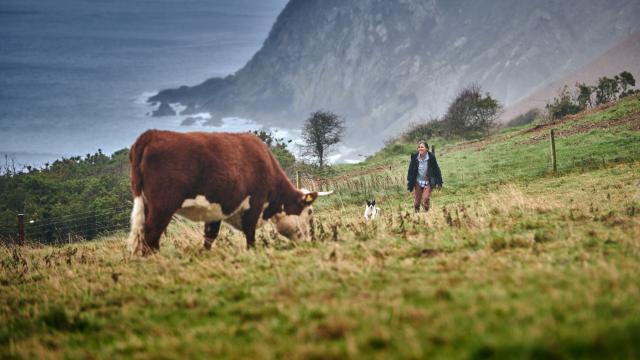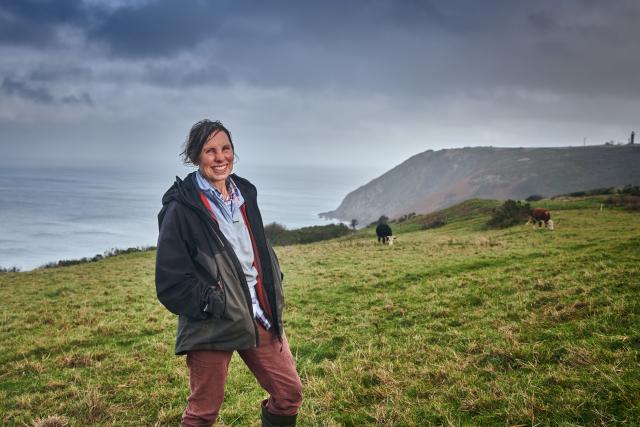
Liz, Nantclyd Farm
Liz farms in partnership with her son Oliver in Ceredigion. She is a first-generation farmer and self-starter who, over 30 years, has developed a highly successful and sustainable mixed farm business supplying eggs, poultry, fruit and veg, grain, lamb and beef.
“We adopted Biodynamic practices as a means of farming holistically – it was a system of farming that did not depend on purchasing inputs. We started with nothing and we had to look after the land the best we could and we found we could do this by farming biodynamically.”
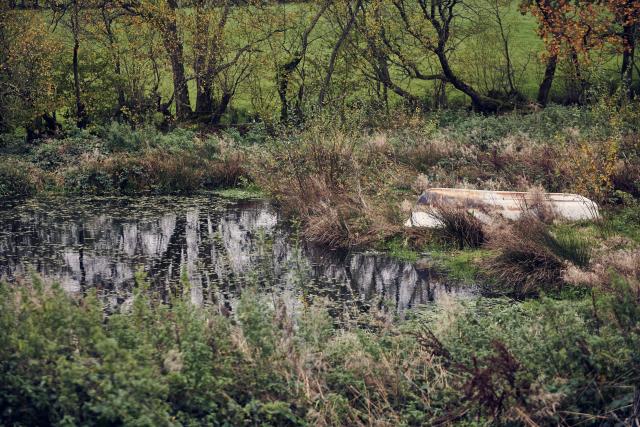
Diversity
Their farm is certified biodynamic by Demeter assuring that they are striving for health and resilience on their farm, whilst nourishing the soil, protecting the environment, respecting the well-being of their animals and producing nutrient dense and nutritious food. They have two sites; Nantclyd, 30 acres near Aberystwyth where chickens are kept and Ffrwdwenith Isaf, 55 acres near Aberporth where grain and legumes are grown for animal feed, fruit and veg is produced for the local market, and cattle and sheep are reared. Biodiversity is actively encouraged as part of their farming system and they proudly won the Joan Loraine Award for Nature Conservation and Organic farming in 2002, which helped them to create a pond for wildlife.
"As the enterprises stack up and diversify the connections and benefits become apparent, from the soil life to the overall productivity of the farm."
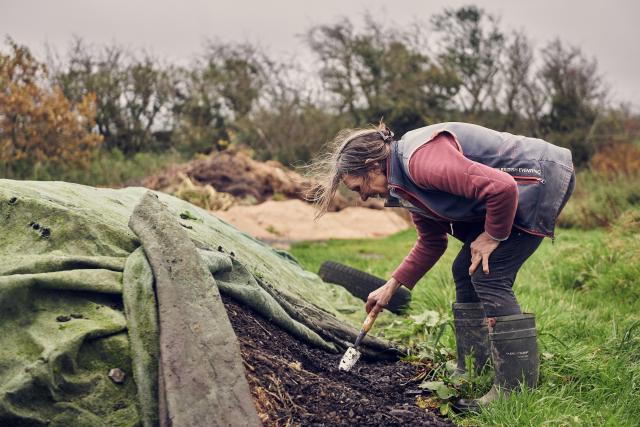
nature
They farm holistically, working with nature and aim to be a closed system as much as possible, meaning they minimise the amount of external inputs and produce most of what they need on their farm. They do not import animal feed such as soy, which may be driving deforestation overseas, and instead feed their chickens grain grown on the farm and sheep and cows grass grown in their fields. Compost is produced on farm which is used to grow fruit and vegetables.
“A closed farming system brings resilience to the farm and helps us greatly.”
They use a composting machine to make aerobic compost in long rows called ‘windrows’. This vastly improves the nutrient cycling on the farm making better use of the poultry manure. They gather together as much diversity of ingredients, all from the farm and layer them into the row – woodchip, waste, poultry, cattle, horse muck, cut docks, thistles, nettles and grass. The row is mixed and turned when it has heated to 65°C (this kills pathogens and weed seeds) and then turned again five to ten times over the course of its life.
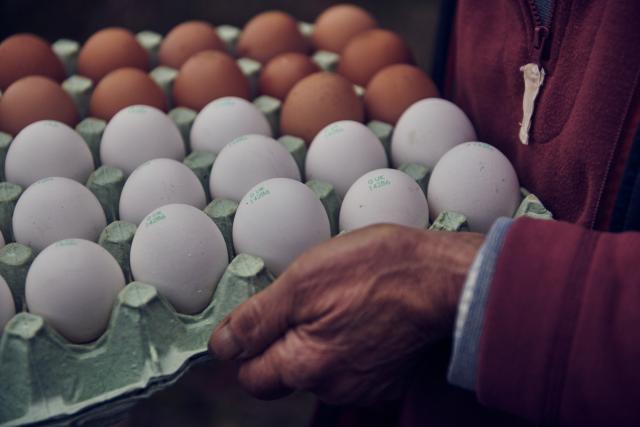
custodians of the land
“I am just a custodian of the land. For me it’s about leaving behind something better than we found… something that will feed future generations… It's about the children and the future.”
They built up the poultry business to a total of 1000 hens, though now they have scaled back to 600, which they believe is the maximum number of chickens that can be kept on their holding without the build-up of excess nitrogen affecting the local area. Their main output is around 200 dozen eggs sold to local shops and beyond. Chicken meat is also sold locally.
“Everything is changeable so you have to be flexible. It’s why we have diversified and are doing more direct selling.”
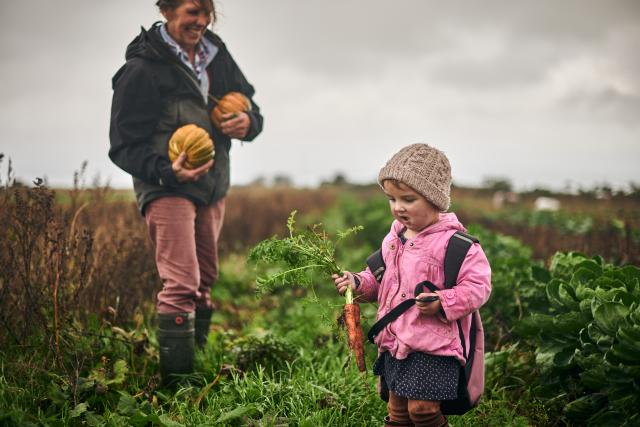
community
"Everything is changeable so you have to be flexible. It’s why we have diversified and are doing more direct selling."
100% pasture fed lamb and beef is sold in local meat boxes from the farmgate as well as in local shops in Aberystwyth and along the Ceredigion coast road. Fruit and veg are sold at the farm gate, through veg boxes and at the weekly St Dogmaels farmers’ market. Hen Gymro, or ‘Old Welshman’ wheat grown this year went to local flour mills to be made into flour and bread sold locally.
"Selling directly at the markets provides an opportunity to talk to people about the way we farm. It’s important people understand about the food we grow."

farming in a climate & nature crisis
Part of the Ffrwdwenith Isaf land near Aberporth is falling into the sea so Liz and Oliver are keenly aware of the impacts of climate change. Since taking on the farm, they have planted over 3000 trees from seeds they have gathered themselves. They believe this plays an important part in building the fungal network in the soil, which helps build fertility. Nantclyd now has around 20% woodland cover and is noisy with birdlife.
"We have moor hens, swallows, house martins, a diversity of small birds in hedgerows, frogs and toads, mice, voles and shrews... Everybody is here enjoying the place."
The coastal site of Ffrwdwenith Isaf provides habitat for declining species such as skylarks and important hunting ground for keystone species like peregrine falcons.
"If we look at nature, it is not static or disconnected from another part of the whole, it is very finely tuned and always responding to the latest stimuli; as humans we need to listen to this. I have come to treat my farm with respect, gratitude and a great admiration for all it does."
